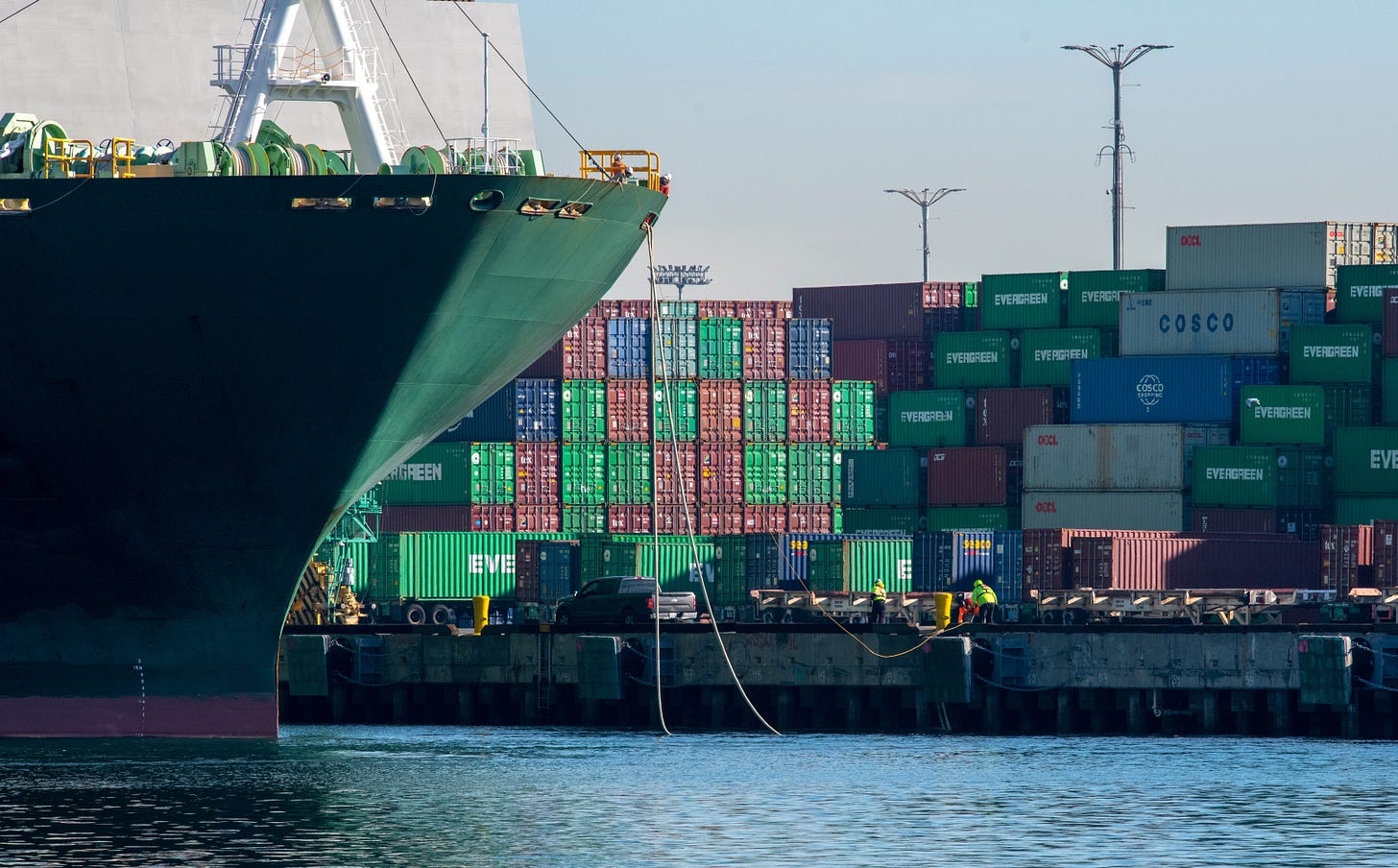Trump's Tariffs Get SCOTUS Side Eye
Conservative justices realize that a future President Mamdani might use the tariff power in ways they don't like.
Yesterday, the president tried to convince the Supreme Court that he has unilateral authority to impose tariffs on other nations every time he invents an imaginary “emergency.” It did not go well for him.
Chief Justice John Roberts, Justice Amy Coney Barrett, and Justice Neil Gorsuch seemed highly dubious of the argument that Congress delegated sweeping emergency tariff powers to the president back in 1977 — powers which went unnoticed by every president until 2025. And even Justices Sam Alito and Brett Kavanaugh seemed underwhelmed.
So far, the court’s six conservatives have only sporadically stood up to the President. In May, the Supreme Court reined in the administration from deporting detainees to El Salvador in the middle of the night under a 200-year-old statute that had only previously been invoked during wartime. On October 1, the court paused Trump’s effort to fire Lisa Cook from the Board of Governors of the Federal Reserve. And last week, the Supreme Court declined to immediately stay district court injunctions preventing Trump from deploying federalized National Guard units to the streets of Portland, Oregon and Chicago, Illinois.
Now, the administration is likely bracing for another loss.
Trump Tariffs 2.0
Article 1, Section 8 of the Constitution says that “Congress shall have Power To lay and collect Taxes, Duties, Imposts and Excises.” Not the president. But Congress has, in limited ways, made periodic emergency delegations of some of its taxing power to the executive.
For example, during his first term, Trump slapped tariffs on aluminum and steel pursuant to Section 232 of the Trade Expansion Act of 1962. Congress authorizes the president to impose tariffs in limited circumstances based on an affirmative determination that the importation of specific products threaten national security. But before imposting tariffs, the law requires that the Secretary of Commerce to conduct a detailed investigation, make factual findings, hold public hearings, and prepare a formal report to Congress.
But that takes time, and it limits the president to imposing tariffs on particular products. So this time around, he just didn’t.




